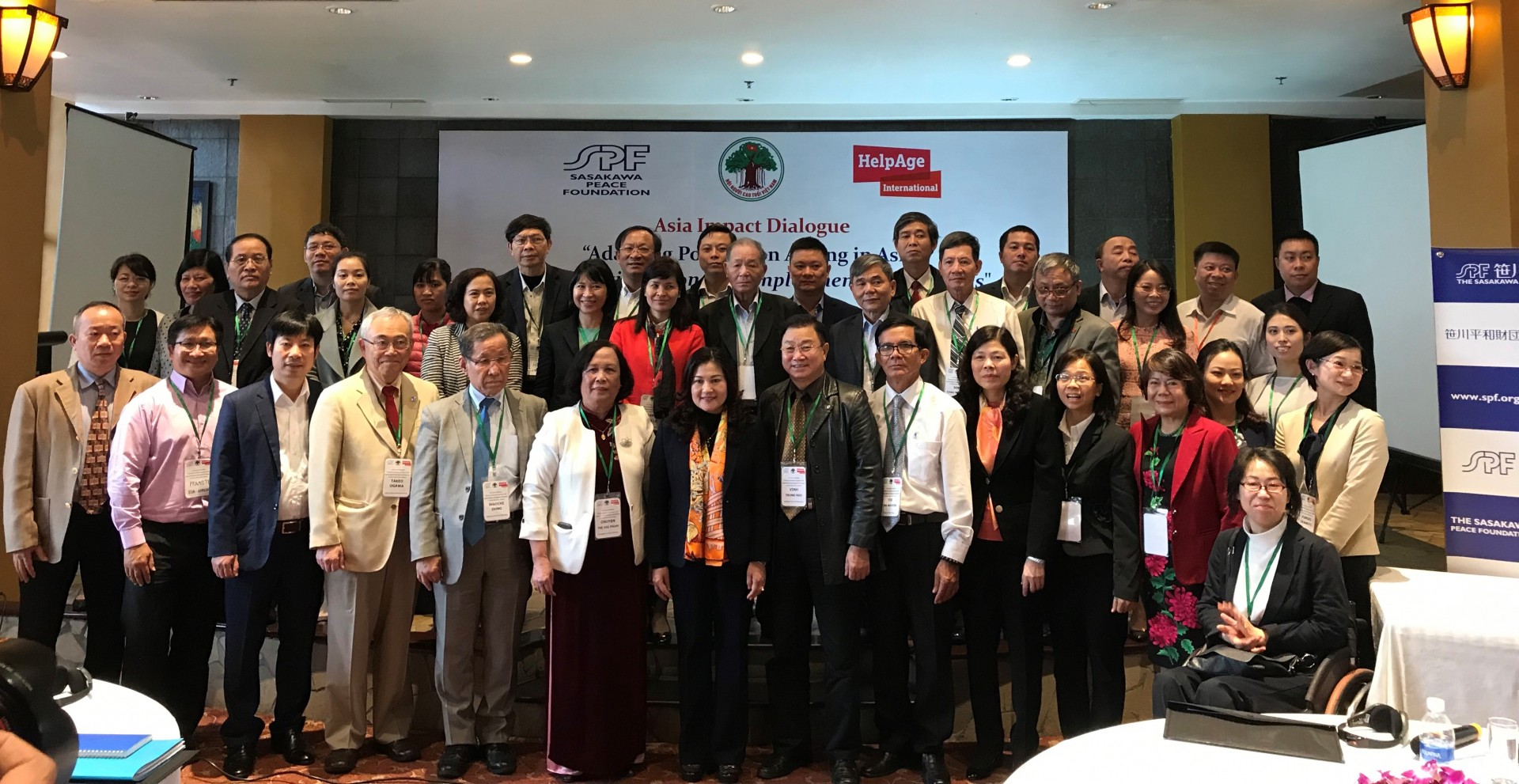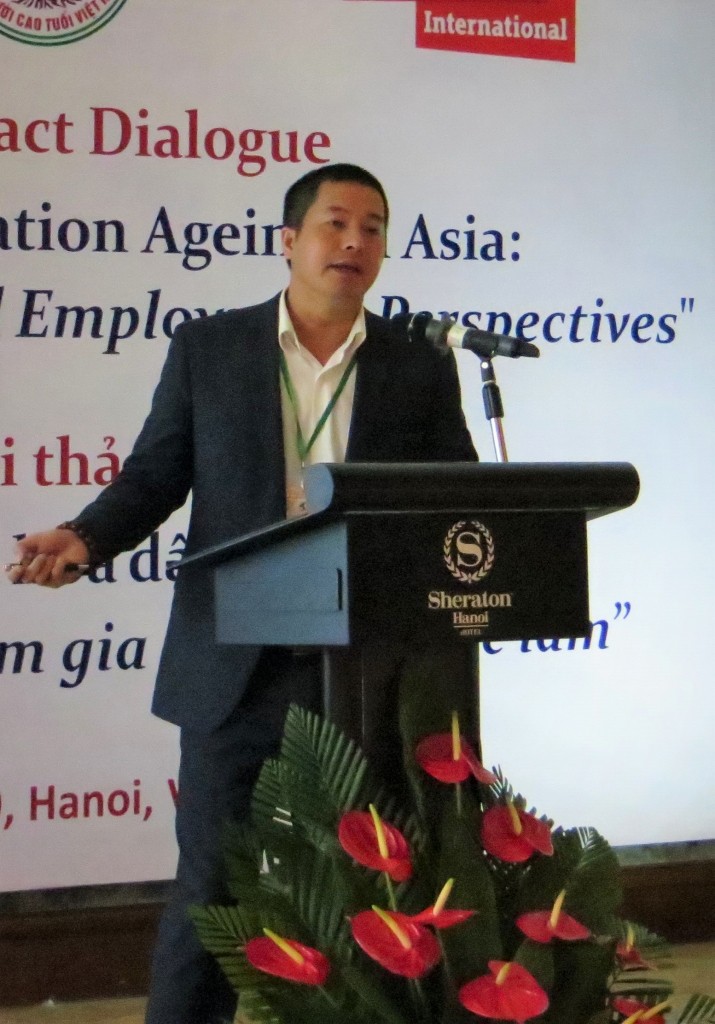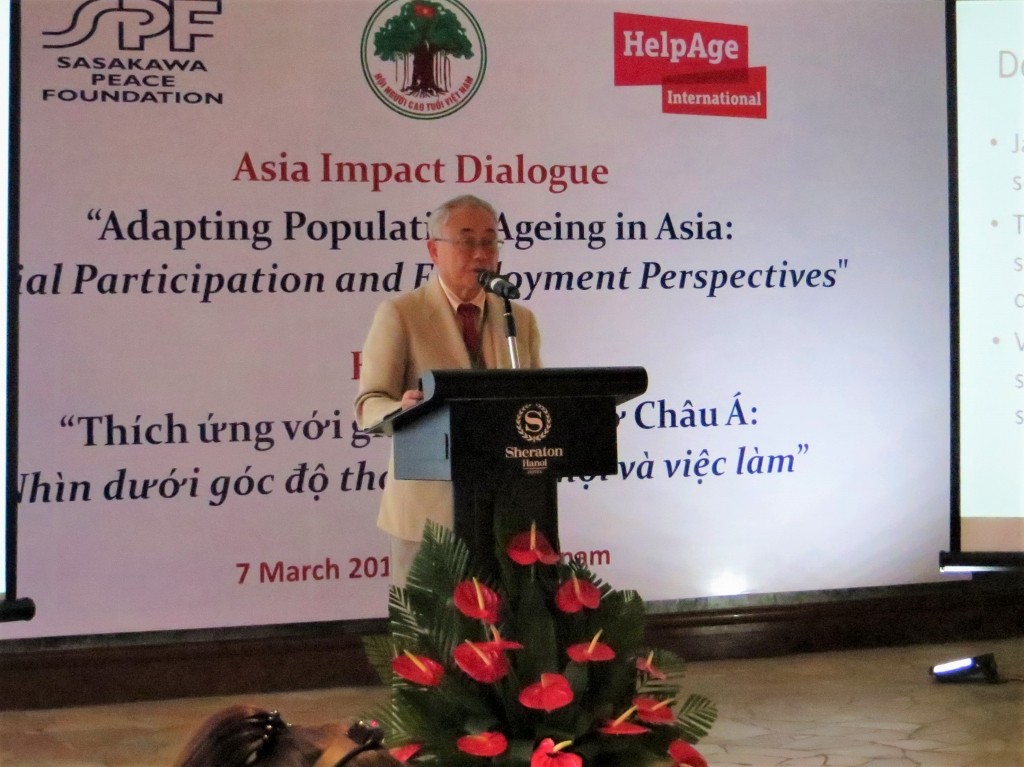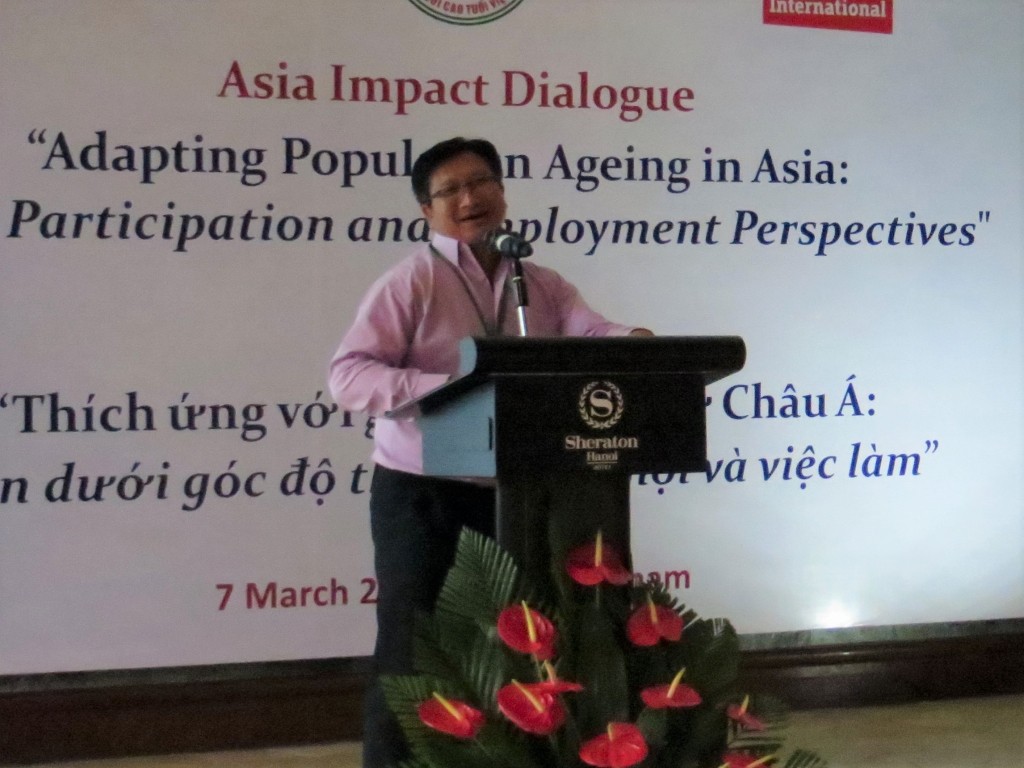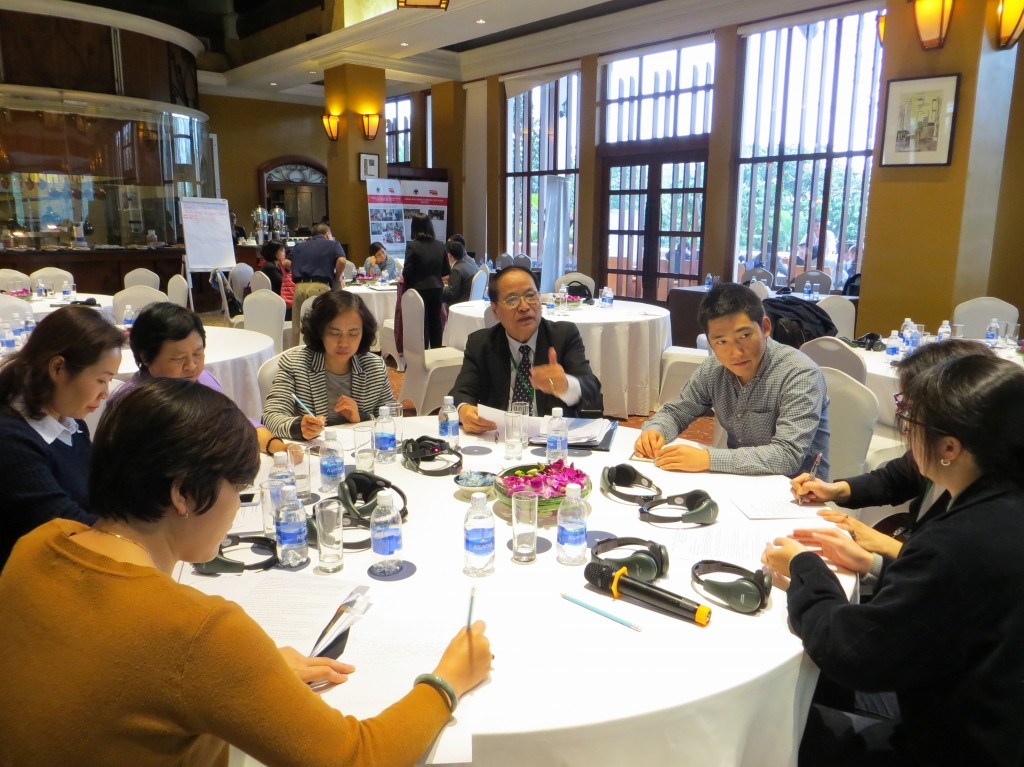Japan and the rest of Asia are both facing the same challenge: an ageing population. The Sasakawa Peace Foundation (SPF) has been hosting workshops on population ageing in Asia as a key part of its “Issues and Implications of Ageing Asian Population” project, in collaboration with the “Asia Impact Dialogue” project. For the third event in this dialogue series, a workshop was co-hosted by the international NGO
HelpAge International Vietnam (HAIV) and the
Vietnam Association of Elderly (VAE) together with SPF on 7th March, 2019. Approximately 50 attendees, including Ms. Nguyen Thi Ha, the Vice Minister of the Vietnam Ministry of Labour–Invalids and Social Affairs, policymakers in Vietnam, local practitioners, and experts from Thailand and Japan discussed adaptation to population ageing in Asia from the perspective of social participation and employment.
